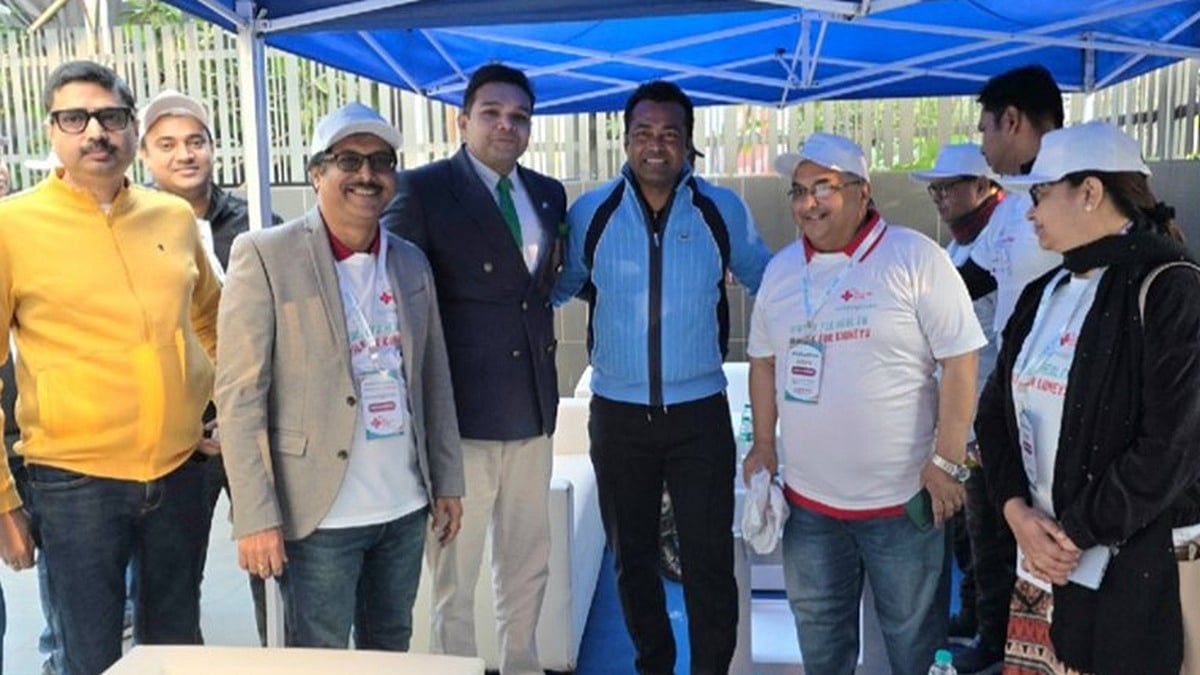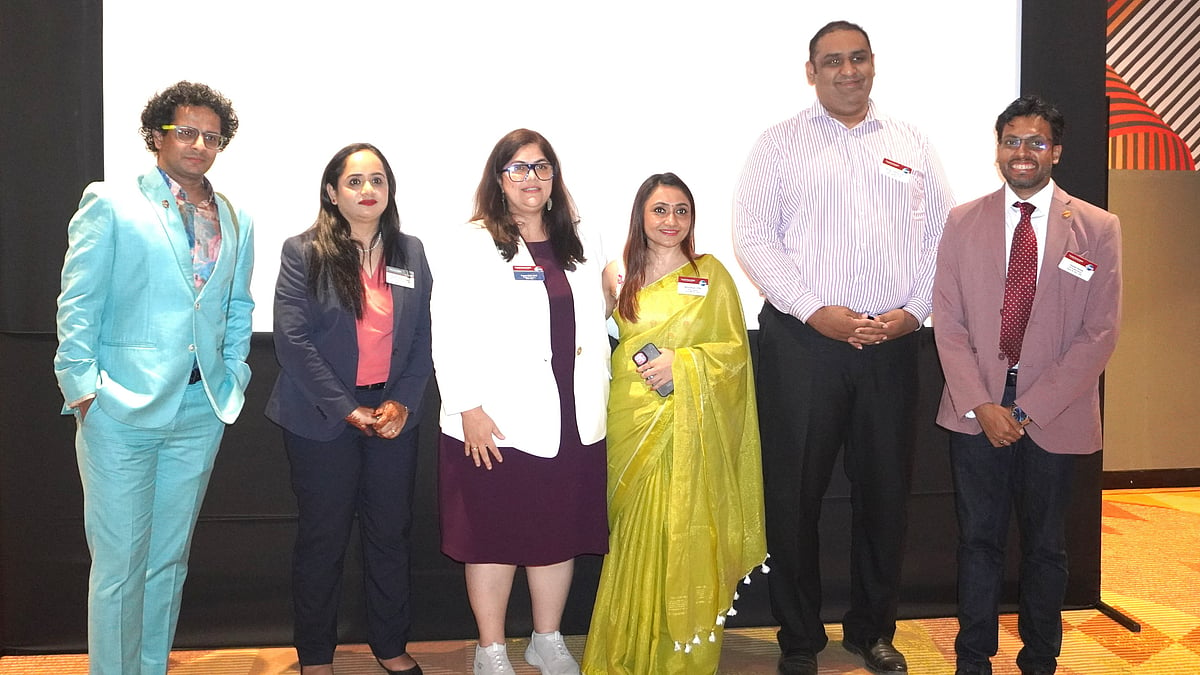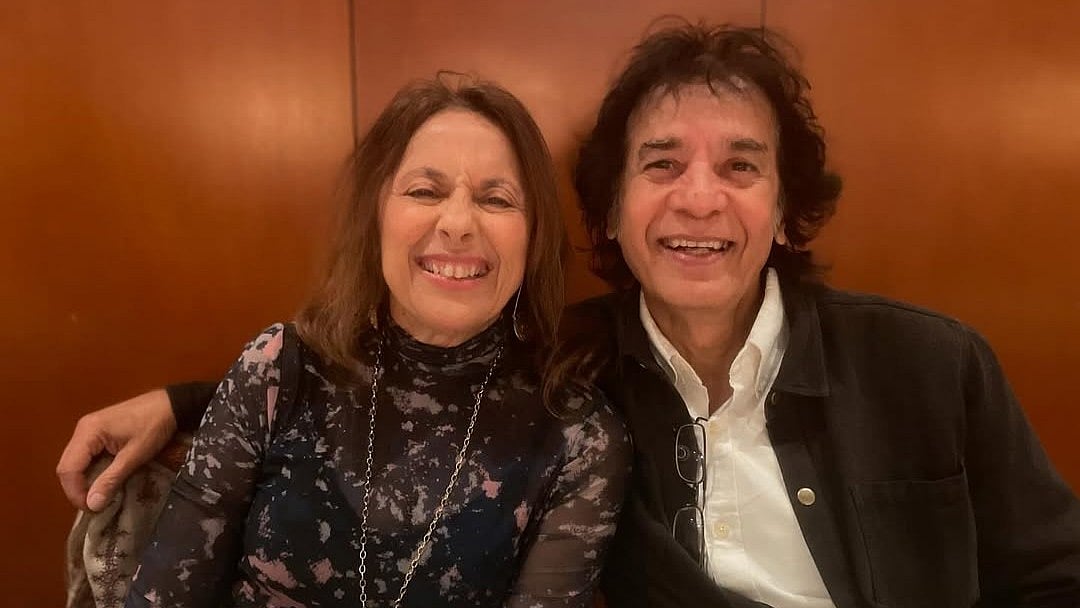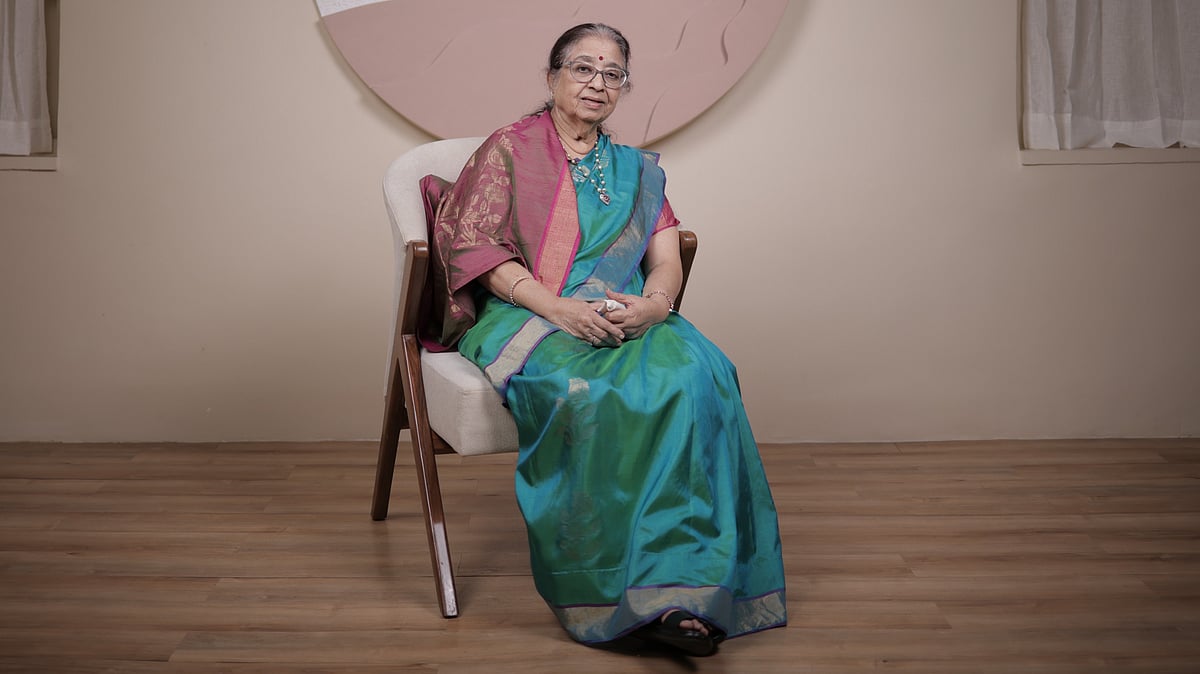When classical vocalist Devaki Pandit received the news that she had been selected for the Sangeet Natak Akademi awards for 2022, she was delighted. “It’s a prestigious award. What makes me even more happy is that both my gurus, Kishori Amonkar tai and Jitendra Abhishekiji were recipients of the honour. It is a good way of carrying their lineage forward,” she says.
In the Hindustani vocal category, Pandit and Harvinder Singh were selected for 2022, and Kalapini Komkali and Vinod Kumar Dwivedi for 2023. The lists for both years were announced together a few days ago. Singers Anuja Zokarkar and Monica Soni were named for the Ustad Bismillah Khan Yuva Puraskar 2023 in Hindustani vocals. “I hadn’t expected it, as there are so many artistes one has to choose from,” Pandit says.
As she celebrates the award, Pandit is looking forward to the concert Saanjhi, curated by Pancham Nishad to mark the Women’s Day. To be held at the Nehru Centre, Worli, on Tuesday, March 5, the evening of semi-classical and folk music will also feature classical and thumri exponent Indrani Mukherjee. The aim of the concert, held in association with AIM for Seva, is to create awareness about the need for girl child education in rural India.
“The concert’s name has been inspired by a form of folk tradition heard in Uttar Pradesh. I will sing various types of compositions, revolving around women and their emotions, from childhood to later in life,” says Pandit. She will thus sing semi-classical forms like Hori and Chaiti, besides some songs in the shringar ras.
“I have also added songs from different regions. There is the Maand from Rajasthan and the Heer from Punjab. From Maharashtra, there are songs sung by women during the sieving of wheat flour. From Goa, I have chosen a folk song sung by women waiting for their husbands who are fishermen. There will be some ghazals and a composition of Kishori tai in Pahadi,” the singer informs.
Pandit was exposed to music at a very early age, by her mother Usha Pandit, who studied vocals but did not take it up professionally. At the age of nine, she started learning from Pt Vasantrao Kulkarni, and worked on the basic rudiments. After a four-year stint with Amonkar, she began learning from Abhisheki, an association that lasted for 13 years till he passed away. “Abhishekiji also told me to pick up some nuances from Babanrao Haldankarji, and that helped me learn more about the Agra gharana,” she recalls.
Since Amonkar and Abhisheki were very different as singers, how did she blend their teaching into her own style? Pandit replies, “On the surface, and even in terms of technique, they were different. But their thought process regarding the aesthetics of music was very similar. It took me a very long time to realise and apply that, but they had their own way of adding ‘bhava’ and not making a raag sound mechanical. My gayaki has, somewhere, evolved from this thought.”
In the 1990s, Pandit got offers to work in film songs. Woh To Hai Albela was sung with Kumar Sanu and composed by Jatin-Lalit in the 1994 film Kabhi Haan Kabhi Naa. She also worked with Naushad in Guddu and multiple music directors in Sai Paranjpye’s Saaz. Though she did Marathi film songs and sang on Hariharan’s 1996 album Halka Nasha, her heart was in classical music and devotional songs. “I kept getting offers, but music directors knew what songs suited me and what I liked to sing,” she shares.
According to Pandit, the advantage of devotional music is that people relate to it. She adds, “Some people find classical music too complex and film music too frivolous. Devotional music forms a bridge. It isn’t complex and yet it has depth. Such songs are spiritual in nature.”

One of Pandit’s projects is Advaita, created as a musical expression of the spiritual journey of seven women saints. It is based on the works of Andal of Tamil Nadu, Akka Mahadevi of Karnataka, Janabai and Muktabai of Maharashtra, Gangasati of Gujarat, Mirabai of Rajasthan and Lalleshwari of Kashmir. The project was designed after Pandit studied the works of these saints, and a script was prepared after they were translated into Hindi by Vaibhav Joshi. “For Maharashtra, we also prepared a Marathi script. Since it involves folk music from different states, we need different types of musicians,” she says.
Pandit is happy doing different kinds of concerts. On January 25, she was part of the Xavier’s Collective evening at IMG Janfest, held at St Xavier’s college. The show also featured other alumni like thumri singer Dhanashree Pandit-Rai, classical vocalist Ronkini Gupta, tabla maestro Fazal Qureshi, and Taufiq Qureshi and his son Shikhar Naad on djembe. “We were a bit sceptical initially, but once we got on stage, it all turned out well,” says Pandit.
Now, Saanjhi will see her presenting fresh repertoire.












